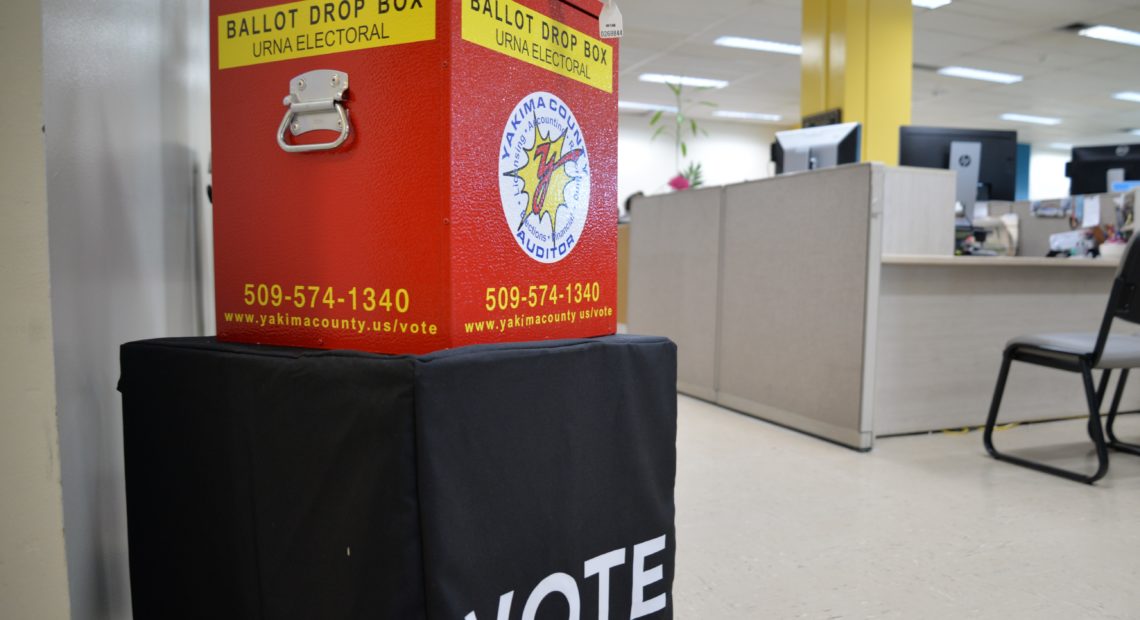
As Yakima Loses Latinx Representation On City Council, Organizers Wonder What Happened
WATCH
LISTEN
Tensions are typically high in the Yakima City Council chambers. That was especially true at a Nov. 5 council meeting. It was a regular Tuesday — one that happened to be election night.
Even small issues explode into arguments, like when a resident who didn’t fill out a form properly stood up to testify during public comment.
“We are not having a debate,” Mayor Kathy Coffey yelled in frustration after councilmembers erupted in argument over whether the resident should be allowed to testify. “I’m trying to move on.”
That frustrates some residents, but not Luz Gutierrez who said during public comment that the source of tensions was also the council’s biggest strength.
“You’ve never had a diverse council before,” Gutierrez said. “No wonder there’s disagreements. That doesn’t mean it’s dysfunctional.”
That ethnic diversity is relatively new. In 2014, a federal court ruling forced Yakima to change its electoral system after a voting rights lawsuit from the American Civil Liberties Union of Washington alleged its city-wide elections suppressed Latinx votes.
Before then, council members were elected by the entire city, even though they represented the districts they lived in. That in and of itself wasn’t an issue, but in the end courts sided with the ACLU because even when Latinx candidates ran in largely Latinx districts, they were voted down in city-wide elections.
The change in Yakima’s electoral system leveled the playing field for Latinx candidates. Eight threw their names into the running in the 2015 election, and three Latinas were elected for the first time in Yakima’s history.
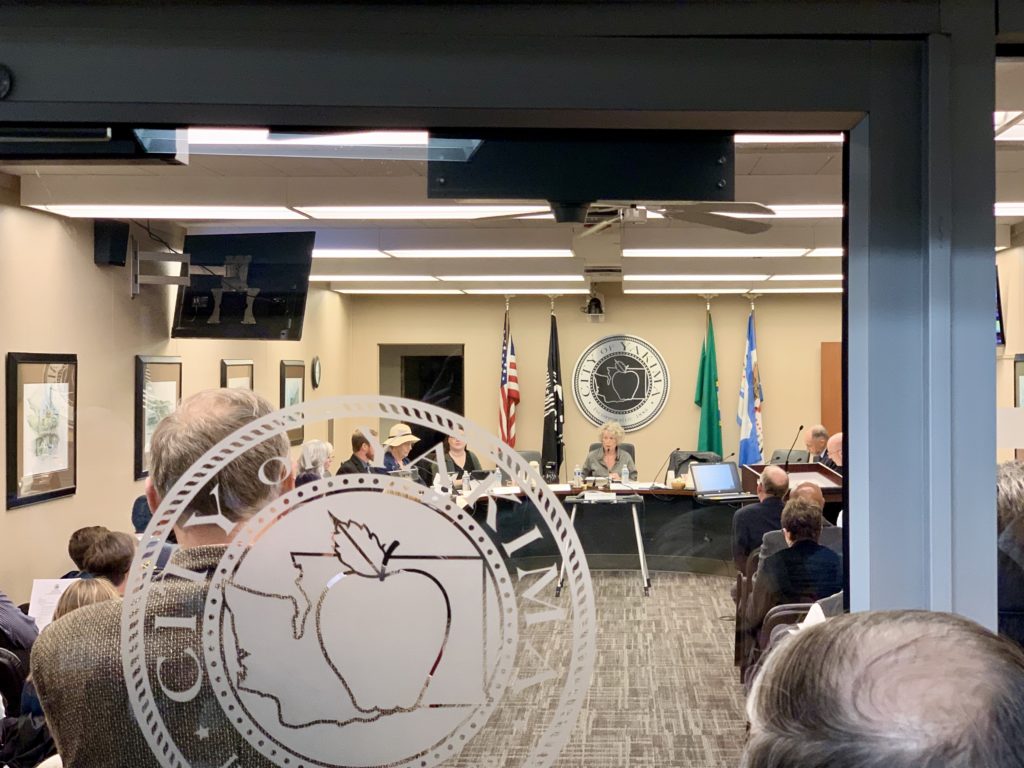
The Yakima City Council voted 4-3 on Tuesday, Nov. 19 in favor of a proposal that would establish an at-large mayoral position in city government if approved by voters in a February special election. Civil rights organizations say any kind of city-wide elections would disenfranchise Latinx residents. CREDIT: Enrique Pérez de la Rosa/NWPB
Councilmembers Dulce Gutiérrez and Carmen Méndez are the only Latinx people on the council currently. They were two of the three first Latinas elected to the council after the city lost the lawsuit and transitioned to a district-based electoral system.
Since being elected, Gutiérrez and Méndez have been strong progressive voices on the council — for example, arguing for an end to deportation flights to and from the Yakima airport. That has sparked clashes between them and moderate-to-conservative members.
But the next council will likely be different. Only two Latina candidates ran for office this year, and just one has a lead — a narrow one — over her opponent.
Yakima’s population is nearly half Latinx.
Different Rules, Same Players
Candidate Berenice Ponce lost in the primary, and Eliana Macias appears to have won her bid — but it’s still too close to call. She leads her opponent Kenton Gartrell by 26 votes as of Thursday, Nov. 21.
Election results will be updated Nov. 25 and certified the following day.
ACLU attorney Breanne Schuster says this year’s election highlighted how delicate Latinx representation is in Yakima.
“Having somebody that is representing the interests of the community they serve really matters,” Schuster said. “It was certainly not able to happen for the Latinx community in an at-large system. But it also illustrates that just fixing the election system is not fixing everything.”
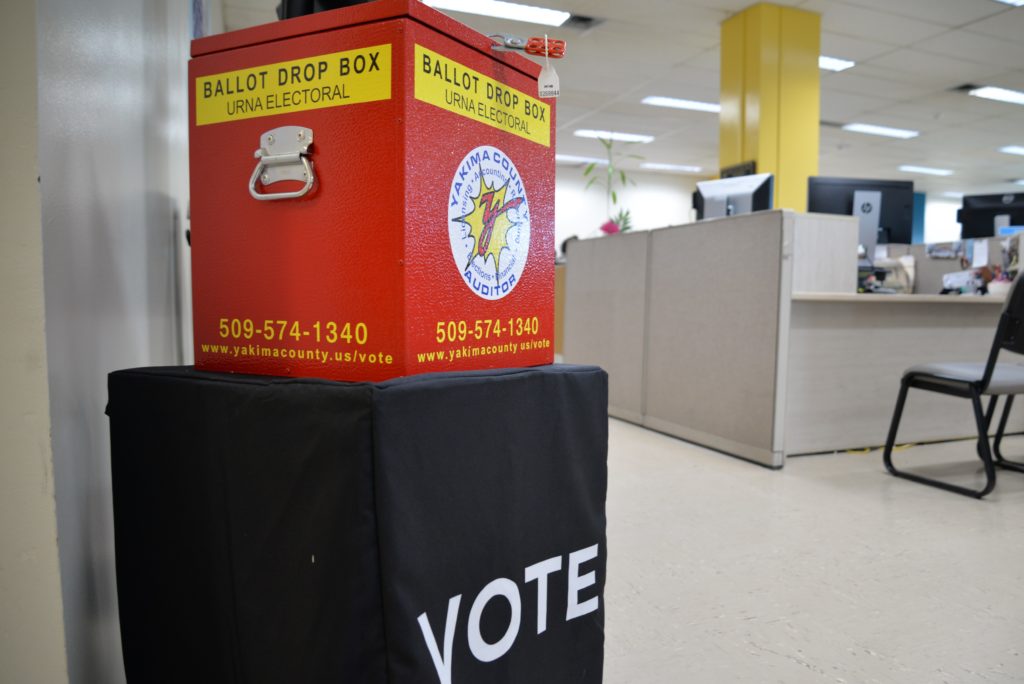
File photo. The Yakima County elections office in 2018. CREDIT: Esmy Jimenez/NWPB
Though the Latinx population makes up the majority in some of the four Yakima council districts up for grabs this year, many barriers keep them from being involved politically and taking power in the districts they live in. That’s according to Gilberto Garcia, a political science professor at Central Washington University.
“We have the districts, but do we have the community there ready to take over,” Garcia said. “Apparently, we don’t. If three white politicians were able to win those districts, something happened.”
For any individual to participate in local politics, they first have to do well economically, Garcia said. And ensuring the socioeconomic well-being of the Latinx population will take a long time.
According to Garcia, another challenge is that in Yakima — and Washington overall — there aren’t any grass roots Latinx organizations that focus on local issues like education or capital projects.
“You need organizations to mobilize the people,” Garcia said. “It has to be an organization that is affected by local issues, like education and economic well-being, and political representation at the local level that affects those communities rather than broad issues like immigration.”
That’s important because immigration issues don’t necessarily mobilize Latinx voters — especially when local issues are on the ballot, Garcia said. Two-thirds of Latinos in the U.S. are native-born. But more importantly, native and foreign-born Latinos view themselves differently economically and socially, requiring different strategies to mobilize.
“Immigrants tend to see their status more like: ‘I’m doing much better here than when I was over there in Mexico,’” Garcia said. “But for U.S.-born citizens, they don’t compare their experience like that.”
In a sense, the diversity of the Latinx population can be a challenge for organizers. Demographics like age, education, political ideology, immigration status, and indigenous backgrounds can vary widely within the community. Defining the characteristics of Yakima’s Latinx population is critical to finding effective strategies to mobilize them.
Electing A Mayor: An Old Fight Comes Back
An organization investing in the community’s political base is OneAmerica, a Washington state immigrant-rights organization based in Seattle. In 2015 the group hired Yakima local Mary Lopez to organize all types of Latinx residents. But Lopez says there aren’t others like her in Yakima — someone dedicated to organizing full-time and year-round, not just during elections.
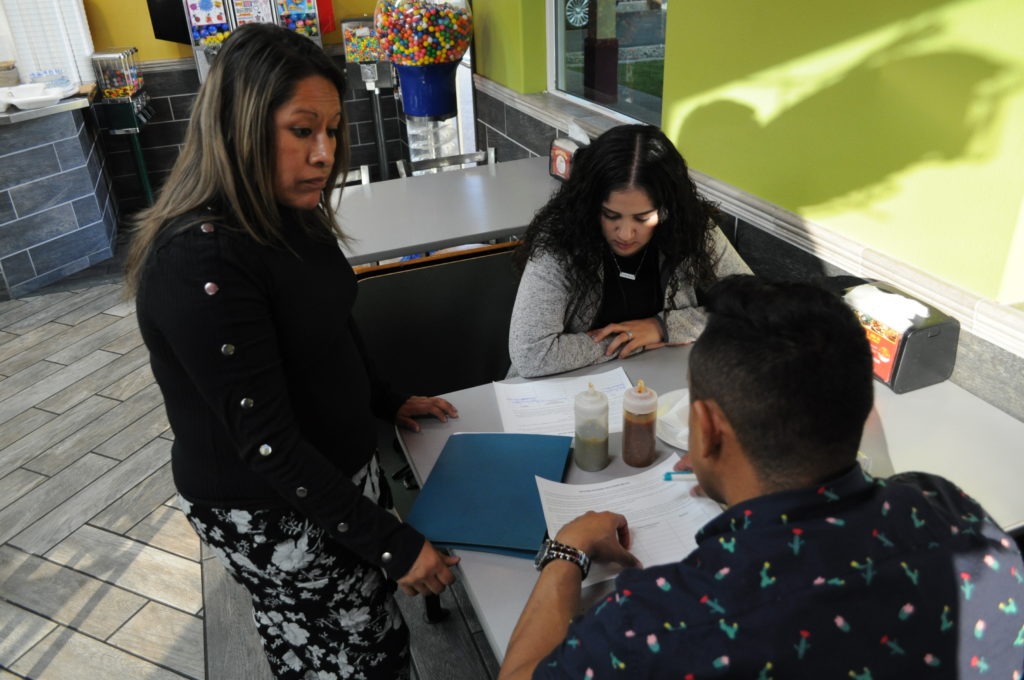
OneAmerica organizer Mary Lopez spent the hours leading up to the Nov. 19 Yakima City Council meeting speaking to residents like Manuel Ceja and Marta Herrera as they ate at a local Mexican restaurant. She urged them to testify against a strong-mayor proposal that, if approved by voters in February, would disenfranchise Latinx voters, she said. CREDIT: Enrique Pérez de la Rosa/NWPB
“I would like to see more of that,” Lopez said. “Even if we post a lot of things on social media, it’s not organizing people. What people need is listening to a real person and having a real and honest conversation.”
Before the most recent city council meeting Tuesday, Nov. 19, Lopez spent the day gathering petition signatures at a local Mexican restaurant, encouraging Latinx residents to go to the meeting.
The city council was considering a measure to put the creation of an elected-mayor system of government before voters in February. Proponents say voters have a right to elect someone to lead the city and be accountable to the entire electorate — a right that has been denied to them since the change to a district system.
Kenton Gartrell is a candidate in a close race for city council against the only Latina in the running, Eliana Macias . He testified before the council Tuesday, saying voters have a right to choose who leads Yakima — and that the mayor should be elected by all voters, city-wide.
“This is a democracy. Government is us, by us and for us. And creating the Yakima we want is up to us,” he said.
Civil rights organizations like the ACLU, Columbia Legal Services and OneAmerica have said in letters to the city council that the change to an elected-mayor system would put the city at risk of another costly Voting Rights Act lawsuit, because any city-wide electoral system would disenfranchise Latinx voters.
Lopez sees the proposal to change the form of government as a reaction to the growing Latinx voice in Yakima politics.
Correction 11/22/2019: This story as been updated to properly describe OneAmerica. It is not a national immigrant-rights group, but is actually based and operates in Washington state.
Related Stories:
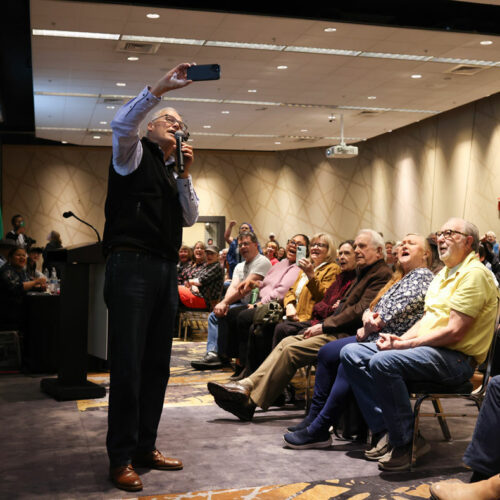
About 200 people attend Democrats’ town hall in Yakima
At the Yakima Convention Center on Wednesday more than 200 people gathered for a town hall hosted by the Washington State Democrats. Some people passed out flyers with Representative Dan Newhouse’s phone number,urging people to demand a town hall from the congressman. Organizers say the event was held in response to Newhouse not hosting a public town hall this term.
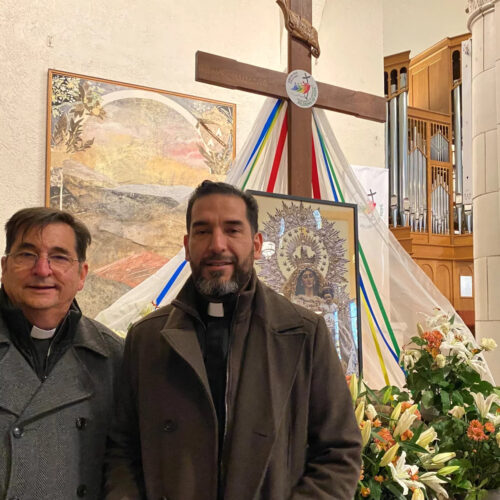
These churches offer shelter and sanctuary to vulnerable migrants. Here’s why
Bishop Joseph Tyson (left) and the Rev. Jesús Mariscal (right) of the Yakima Diocese worry about how their parishioners will cope with broad changes to immigration policy, which have had

Landfill neighbors worry about PFAs contamination seeping into drinking water
A view of the landfill from Carole Degrave’s property line. (Credit: Courtney Flatt / NWPB) Listen (Runtime 0:54) Read For years, some people who live near a Central Washington landfill















